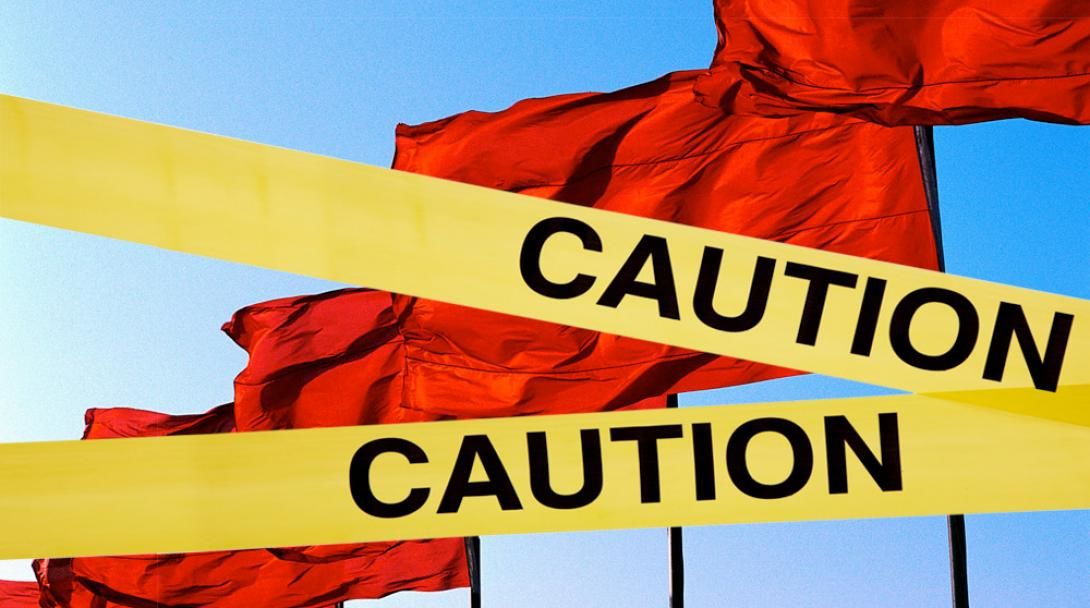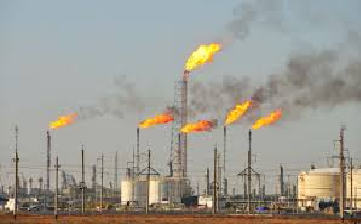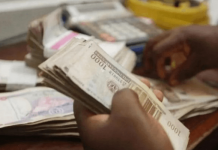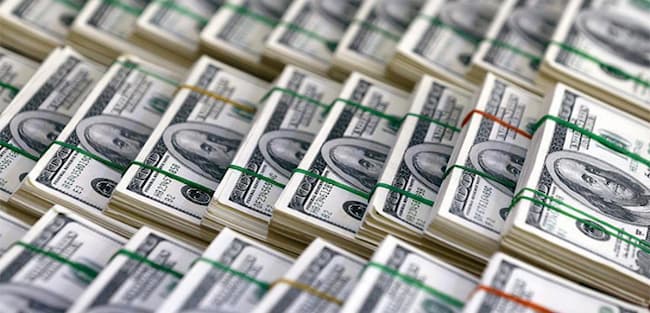Shell, Chevron, Mobil and other oil firms operating in Nigeria are expected to pay a total of $45.9 million (N19.75 billion) fine or more for gas flared from January to June this year.
Analyses of Nigerian National Petroleum Corporation (NNPC) data on gas production by BizWatch Nigeria on Monday showed that a total of 91.8 billion standard cubic feet of natural gas was flared in January to June 2021.
This is despite the plans and strategies deployed by the Nigerian government to put an end to the wasteful gas flaring practice in 2020.
The NNPC data showed that in January 13.04 billion scf was flared while 13.02 billion scf was flared in February.
In March this year, 17.66 billion scf gas was flared while 17.1 billion scf gas was wasted through flaring in April.
In May, 17.96 billion scf was flared while 13.02 billion was flared in June this year.
The Federal Government in its revised gas flare regulation imposed a penalty of $2 per 1,000 standard cubic feet of gas for oil firms producing 10,000 barrels of oil or more per day.
However, firms producing less than 10,000 barrels of oil per day will pay a gas flare penalty of $0.5 per 1,000 scf.
Therefore, for 91.8 billion scf of gas flared in the six months under review, the oil and gas firms are expected to pay a fine of $45.9 million (N18.83 billion) or more.
READ ALSO: Julius Berger Announces Three-Month Diversion On Lagos-Ibadan Expressway
The government plans to channel the penalties paid by oil and gas companies for flaring gas inot the construction of midstream gas infrastructure in host communities.
This plan, is contained in the reviewed Petroleum Industry Bill (PIB) that has been passed by the National Assembly.
“Moneys received from gas flaring penalties by the commission (Nigerian Upstream Regulatory Commission) pursuant to this subsection, shall be transferred to the Midstream Gas Infrastructure Fund for investment in midstream gas infrastructure within the host communities of the settlor on which the penalties are levied,” the subsection (4) of section 104 of the PIB stated.
Nigeria has long been a global hotspot for gas flaring, with successive government administrations reiterating their commitment to cleaning up the industry.
Despite warnings and deadlines by the Federal Government to oil companies to stop gas flaring, the practice still continues.
The international community had also joined in calls for the stoppage of gas flaring due to its negative impact to the environment.
In 2020, the government disclosed plans to tackle the issue and raise new revenue from wasted natural gas. This led to the revised gas flaring penalties.
Nigeria Lost N150.62bn To Gas Flaring In Six Months
Further analyses of the data obtained from NNPC showed that the Nigerian government and other investors lost $66.97 million to gas flaring in the two months under review.
With the price of natural gas put at $4 per 1,000scf as of Monday, the 91.8 billion scf flared from January to June translates to an estimated loss of $367.2 million.
READ ALSO: Plane Crash: Air Peace Debunks Reports
This is equivalent to N150.62 billion at the official exchange rate of N410.19/dollar.
According to World Bank data, Nigeria is the seventh-largest gas flaring country in the world with almost 8 billion cubic meters of gas flared annually.
What Is Gas Flaring?
Gas flaring, is the practice of burning off natural gas discovered during with crude oil extraction into the atmosphere instead of removing the gas through subterranean re-injection.
The gas, according to experts, can also be confined to storage tanks for eventual sale.
Gas flaring is a preferred method of disposal by IoCs and Local oil firms because it is less expensive but releases harmful products into the environment than other disposal methods that are costlier.
Effects Of Gas Flaring
Extensive research has shown that gas flaring introduces toxic pollutants such as sulfur dioxide into the atmosphere, which can lead to environmental problems such as acid rain.
The practice also produced greenhouse gases which contribute to global climate change.
Burning of natural gas in close proximity to wildlife or land areas in the Niger Delta region has led to high soil temperature, low crop yield, pollution of water and deteriorating health.
Nigeria Gas Flare Commercialisation Programme
In 2020, the government devised a concerted effort to tackle gas flaring and raise new revenue from wasted natural gas.
As such, the Federal Government in February 2020 launched the first phase of the Nigerian Gas Flare Commercialization Programme (NGFCP), having shortlisted 200 bidding companies following the evaluation of statements of qualification.
The NGFCP is a key component of the National Gas Policy, which sought to end gas flaring, create an enabling environment for investors, seek value addition for gas and improve governance in the sector.
The Department of Petroleum Resources (DPR) declared that 45 gas flare sites would be put up for auction in the first phase of the NGFCP.
However, the DPR announced in June 2020 that the NGFCP is being delayed by six weeks due to COVID-19 related travel restrictions, thus limiting the involved stakeholder’s ability to access flare points.
The first phase of the programme is expected to resume once travel restrictions lighten.
If successful, the policy’s potential GDP impact is estimated at approximately $1 billion per annum. Assuming average project sizes in the range of $10-40 million, the NGFCP has a potential of triggering around 70 to 89 projects.
Also, within one to two years, the NGFCP is estimated to generate about 300,000 direct and indirect jobs.
















